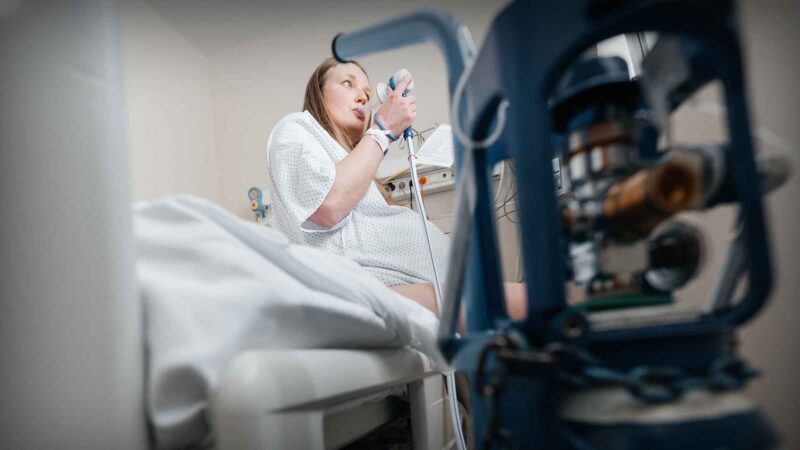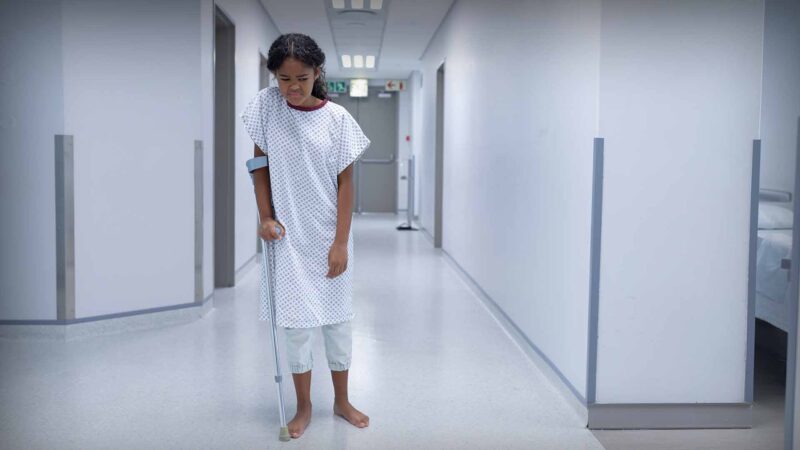BIOMARKERS FOR EARLY SEPSIS DETECTION
With
Dr Gabrielle Briggs
Postdoctoral Researcher and Lab Manager,
School of Medicine and Public Health
The University of Newcastle, New South Wales, Australia
RESEARCHER PROFILE
Filmed in Newcastle, New South Wales, Australia | October 2025
Dr Gabrielle Briggs is a biomedical scientist dedicated to finding smarter, faster ways to diagnose and treat life threatening complications in critically ill patients. Dr Briggs established a research laboratory embedded within the John Hunter Hospital – one of the busiest major trauma centres in NSW. Dr Briggs works alongside surgeons, intensivists, and pathologists to turn complex clinical problems into practical research solutions. Her work spans two major programs: developing a rapid diagnostic test to detect bacterial infections in blood before sepsis takes hold, and exploring mitochondrial transplantation as a novel therapy to rescue injured tissues after trauma and ischaemia.
Dr Briggs has a strong focus on innovation and translation, building close partnerships between the university and the health service to accelerate the movement of new technologies into clinical practice. Gabrielle played a key role in founding the Hunter Medical Research Institute’s Injury and Trauma Research Program and currently serves as its Deputy Director. Gabrielle is also an enthusiastic educator, teaching the next generation of clinicians in the University of Newcastle’s Joint Medical Program.
Source: Supplied
You Might also like
-
Medically Complex Pregnancies
A/Prof Shelley Wilkinson is an Advanced Accredited Practising Dietitian, Fellow of Dietitians Australia, and a leading Australian researcher in maternal health and implementation science.
She has over 30 years of experience in the field and holds a PhD in Psychology. Her passion is in health service redesign through co-creation and combining the ‘know-what’ of nutrition with the ‘know-how’ of innovative behaviour change techniques.
-
Visceral pain and the gut-brain axis
Professor Stuart Brierley is Director of the Visceral Pain Research Group, Director of the Hopwood Centre for Neurobiology, and Theme co-Leader of Lifelong Health at the South Australian Health and Medical Research Institute (SAHMRI).
Prof Brierley is an international expert on the ‘gut-brain axis’ and chronic visceral pain mechanisms. Current investigations are on a individual cell type called the enterochromaffin cell, and it helps signal pain and anxiety from the gastrointestinal tract to the brain.
-
Neuroscience, neuropharmacology and exercise science
Dr Jacob Thorstensen is an early-career Assistant Professor in Neuroscience and Physiology in the Faculty of Health Sciences & Medicine at Bond University. He is also an honorary research fellow in The School of Biomedical Sciences at The University of Queensland. His work has unveiled several new neuroscientific mechanisms which have future applications for movement disorders.

 https://orcid.org/0000-0002-9117-4772
https://orcid.org/0000-0002-9117-4772


